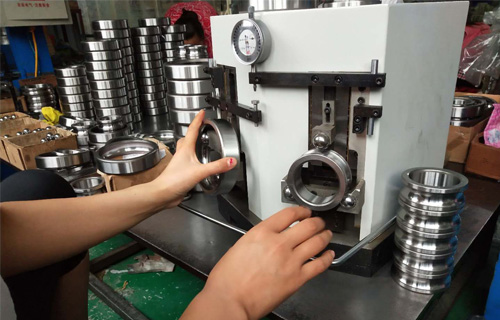
Nov . 08, 2024 08:32 Back to list
High-Performance 6212 Ball Bearings for Smooth and Reliable Operation in Various Applications
Understanding the Ball Bearing 6212 A Key Component in Modern Machinery
Ball bearings are essential components in a wide range of machinery, enhancing performance and durability by reducing friction between moving parts. Among various types of ball bearings, the 6212 ball bearing stands out due to its versatility and efficiency. In this article, we will delve into the specifications, applications, and advantages of the 6212 ball bearing, as well as tips for maintenance and selection.
Specifications and Design
The 6212 ball bearing is part of the deep groove ball bearing series, characterized by its design that allows for both radial and axial loads. It typically features an inner diameter of 60 mm, an outer diameter of 110 mm, and a width of 22 mm. This standardized sizing allows for easy integration into various machinery. The 6 in 6212 signifies that it belongs to the larger deep groove series, optimized for higher load capacities compared to smaller bearings.
The construction of the 6212 generally includes steel balls housed in a steel or chrome casing, providing robust protection against wear and tear. Many manufacturers also offer variations that include seals or shields to protect against dust and moisture, which can significantly extend the bearing's lifespan.
Applications of the 6212 Ball Bearing
The versatility of the 6212 ball bearing makes it suitable for a myriad of applications across different industries
. Common applications include1. Electric Motors These bearings are often utilized in electric motors, where they support rotors and help facilitate smooth operation with minimal friction. 2. Automotive Components In vehicles, 6212 bearings can be found in alternators, gearboxes, and wheel hubs, playing a crucial role in ensuring reliability and performance. 3. Industrial Machinery Many types of machinery, such as conveyor belts and pumps, incorporate 6212 bearings due to their capacity to handle combined loads and speed variations.
4. Household Appliances From washing machines to ceiling fans, these bearings contribute to the efficiency and longevity of many household devices.
Advantages of the 6212 Ball Bearing
ball bearing 6212

One main advantage of the 6212 ball bearing is its ability to run at high speeds while maintaining a low level of friction. This is crucial in applications where energy efficiency is paramount. Additionally, its deep groove design allows for considerable axial load capacity, making it suitable for various load configurations.
Another significant benefit is the ease of maintenance. The 6212 can be re-greased, allowing for prolonged service life. Moreover, easy replacement in case of damage reduces downtime, significantly benefiting streamlined operations in industrial settings.
Maintenance Tips for Optimal Performance
To ensure the 6212 ball bearing operates at peak performance, regular maintenance is essential. Here are some practical tips
- Lubrication Regularly check the lubrication. Use the appropriate grease recommended by the bearing manufacturer to minimize friction and prevent overheating. - Inspect for Wear Periodically inspect the bearing for signs of wear, such as roughness or excessive play. Early detection can prevent catastrophic failure.
- Seal Maintenance If your 6212 bearing has seals or shields, ensure they remain intact to protect against contaminants.
- Proper Installation Follow manufacturer guidelines during installation to ensure alignment and to minimize stress on the bearing.
Conclusion
The 6212 ball bearing is a vital component in various mechanical systems, offering a blend of strength, versatility, and efficiency. Its design allows for both radial and axial load handling, making it an ideal choice in numerous applications ranging from industrial machinery to home appliances. By understanding its specifications, applications, and maintenance requirements, users can ensure they maximize the lifespan and performance of this crucial component. In a world that increasingly relies on machinery, the significance of such bearings cannot be overstated, highlighting their role in driving efficiency and durability in modern technology.
Latest news
-
Grooved Ball Bearing Design and Functionality
NewsJun.04,2025
-
Concrete Mixer Bearing Load Capacity Testing
NewsJun.04,2025
-
6004 Bearing Dimensions in Robotic Joint Designs
NewsJun.04,2025
-
Advantages of Single-Row Deep Groove Ball Bearings
NewsJun.04,2025
-
Applications of Deep Groove Ball Bearings in Automotive Systems
NewsJun.04,2025
-
Innovations in Bearing Pressing Machine Design
NewsJun.04,2025
